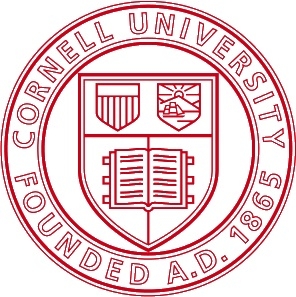 While surfing the web the other night, I came across a recent opinion/editorial piece by a senior columnist named Judah Bellin in my alma mater’s school newspaper, The Cornell Daily Sun, discussing Asian American admissions quotas and perceptions:
While surfing the web the other night, I came across a recent opinion/editorial piece by a senior columnist named Judah Bellin in my alma mater’s school newspaper, The Cornell Daily Sun, discussing Asian American admissions quotas and perceptions:
We can’t really gauge Cornell’s role in penalizing Asian applicants, mostly because the admissions office is always hesitant to reveal information about minority students. However, we must pay careful attention to our treatment of Asian students. I do know of one former admissions officer who likes to boast about rejecting scores of Asians because he didn’t want them in his classes. Given the faculty condescension towards Asian students that I and many others have observed, it wouldn’t surprise me if more admissions officers acted on similar impulses.
What I find interesting is that this op-ed is written by a Jewish student, who describes the past discriminatory practices in the early 20th century to limit the number of Jews into Ivy League universities to provide some historical context. If the above comments made by Bellin are true regarding the former admissions officer as well a some Cornell professors, that is a whole lot more concerning than a UCLA student ranting against Asian Americans on YouTube.
Bellin captured my sentiments perfectly on the challenges of a university’s mission:
I have no doubt that admissions officers now use similar rhetoric [as they did with Jewish applicants back in the early 20th century] about “flooding” with regards to Asian students, both at Cornell and around the country. Of course, this is not entirely unwarranted: If Cornell wishes to create leaders for many different segments of our society, a class of qualified students representing mostly one ethnic, racial, socioeconomic or political group is undesirable. However, history suggests that this attitude may both reflect and reinforce widely held, yet unwarranted, cultural stereotypes.
The challenge or argument of course is how to grow opportunity for all given a limited entering class size. Logistically, growing a university’s class size has its own set of problems and not necessarily very realistic. Bellin references the outcome after California Proposition 209 passed in 1996, which prohibited California publicly funded universities from considering race, sex, or ethnicity in the admissions process – admissions for Asian Americans skyrocketed – making Asian Americans at some UC’s 40% to 50% of the undergraduate population (California is approximately 13% Asian). Thus creating acronyms such as UCLA – United Caucasians Lost [amongst] Asians, UCR (UC Riverside) – University of Chinese Rejects, etc. and Republican race-based bake sales at Berkeley (which incorrectly under-priced Asian Americans).
As some of those have commented on the article, would it be socially acceptable if Asian Americans at Ivy League and other “elite” universities skyrocketed to the University of California levels? Especially since most of these universities are based in a predominately white North East (as opposed to an increasingly minority majority California).
I’m honestly not sure what the real answers are here and am conflicted. I’m of course want all qualified students to be admitted, but do appreciate the benefits of a diverse academic environment (and not just limited to race or ethnicity). Today, given that more women than men attend college, there is a sort of reverse traditional affirmative action for men to help maintain gender balance. Personally, having studied mechanical engineering as well as working in Silicon Valley, I would have loved to have seen more women in my classes as well as now working in Man Jose, California in the workforce.
Having gone out of my way to live all four years of college at the International Living Center one of the Americans, I truly learned a lot outside of the classroom about the diverse world we live in from my fellow Cornellians from around the world. But reading about how Asian Americans are potentially being penalized is also really troubling. I’m just glad in this increasingly competitive college admissions “game,” that I was admitted and able to attend Cornell when I did.








